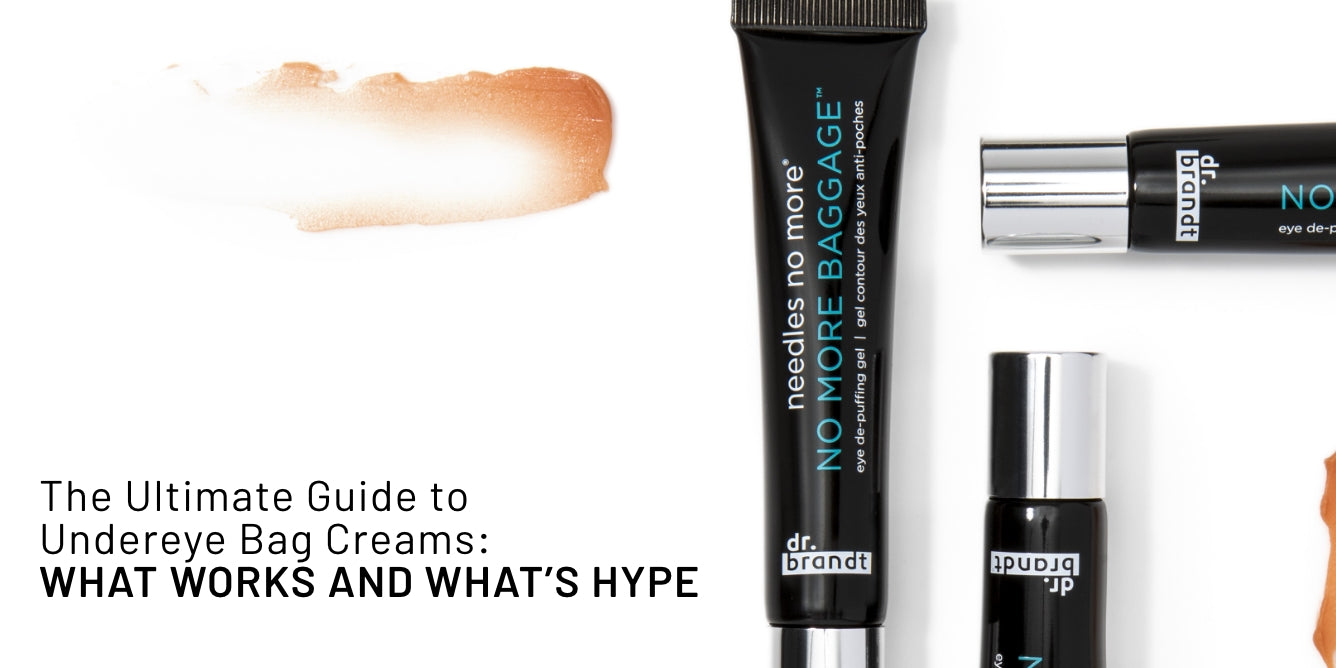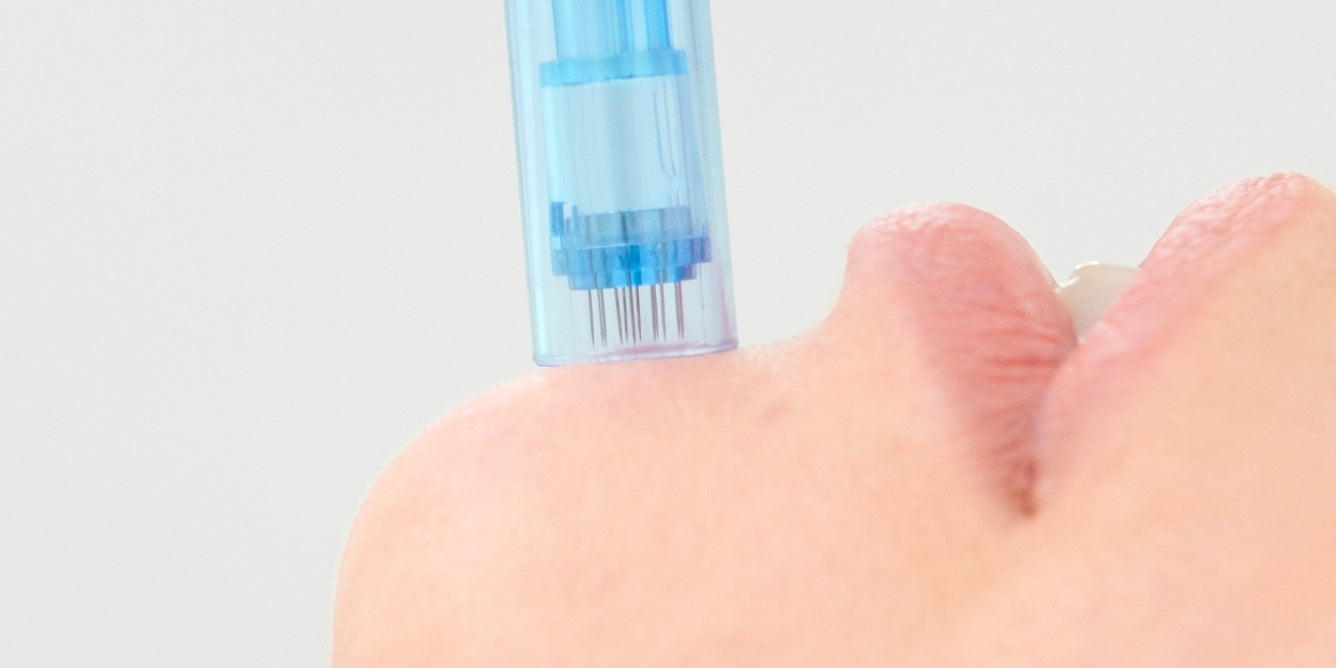
By Dr. Shasa Hu, MD, FAAD
Retinols are truly considered the gold standard in topical anti-aging. It is among the rare group of ingredients that improves multiple aspects of aging skin. While it is not a “new” skin care ingredient, there are still a lot of confusion and myths out there on the whats, hows, and whys of retinol. Let’s break down the science behind retinol for you.
What is retinol, and what does it do?

Retinols are commonly confused with retinoids (aka “retinoic acid”). Both are vitamin A derivatives that have anti-aging benefits. However, retinoids are available only in prescription formulation from your dermatologist, while retinols are the closest over-the-counter substitution for retinoids. Most of the clinical studies on skin rejuvenation and skin improvement have been conducted using retinoids, and have shown that face creams with retinoids improve fine lines, skin elasticity, luminosity, reduce sun damage, uneven pigmentation, and dark spots. Retinols on the molecular level gets converted to retinoids by your skin cells when applied; therefore, biochemically retinols are very similar to retinoids. Multiple clinical studies have validated the benefits of consistent topical retinol use on skin quality and appearance. So while retinols may not be as “strong” as retinoids, retinols have the advantage of being available without a prescription and being gentler on your skin than retinoids.
What are the benefits of retinol in skincare?

Retinols are found in many skin creams, eye creams, oils, and serums because this vitamin A derivative promotes skin cell differentiation and collagen synthesis; hence, combats wrinkles and sun damage when used long-term, like Dr. BRANDT Glow Overnight Retinol Oil. On a cellular level, retinols are converted to retinoids by our skin cells, then a cascade of cellular reactions are set in place that results in stimulation of fibroblasts to produce more collagen, scavenging of free radical oxygen species from sun damage, repair of DNA damage, healthier and more robust skin cell turn over with more regulated melanin synthesis. These cellular events lead to improved skin texture, skin tone, reduced fine lines, firmer, and brighter skin with reduction in sun damage when retinols are used consistently over the long term. The other less well-known benefits of retinols include its benefit for people with blemish prone and oily skin as retinols help to regular oil production and de-clog pores. Lastly, retinols can improve aging around our eyes by improving skin firmness and elasticity. (Dr. BRANDT 24/7 retinol eye cream)
How to use retinol and when to avoid?
- Using in the evening
- Avoid in the sun

Because retinols and retinoids are both de-activated (lose its efficacy) by sunlight, both are meant to be used only at night. Contrary to popular belief, retinols do not make us prone to sunburn or increase our sensitivity to sunlight. It is essential to use a sunscreen like Liquid Sun Shield SPF 50 with retinols so that you don’t lose the benefits of retinols by exposing to more DNA damage from unwanted sun exposure. Retinols may cause some skin irritation among those with sensitive skin during the initial application. This irritation improves as your skin cells adjust to the effects of retinol, over the course of 2-4 weeks. The retinoid dermatitis can be much worse when using prescription Retin A or tretinoin. This is also why your dermatologists may recommend you to start with a retinol, then slowly transition into a retinoid to minimize irritation. Because of its gentler effects, retinols are often used in eye serums and creams to address signs of aging in that delicate area. Retinols can be formulated to suit all skin types, from sensitive, dry to blemish prone and oily. Many OTC retinols are packed in slow, releasing emulsified molecules to minimize irritation and prolong the activity of retinols, a great example is Dr. BRANDT Triple Active Retinol, with a unique combination of three forms of retinol for long-term action: stabilized retinol and bakuchiol-a plant-based retinol alternative-for immediate benefits and encapsulated retinol for gentle delivery over time.
Retinol treatment for skin problems
Because of its multifaceted benefits on skin cell turnover, collagen production, and DNA damage repair, retinols can be incorporated into skin care routine that addresses a variety of concerns ranging from skin aging, pore clogging, uneven texture, dull complexion, pigmentation, blemish-prone skin, oily skin and concerns of sagging and fine lines. In general, those with sensitive, dry and aging concerns may benefit from retinols in richer vehicles such as oils and rich creams, while those with blemish prone and oily skin may prefer retinols in serums and light creams. Retinol serums can be universal for all skin type because it is fast absorption and compatibility with the layering of skin care products.

Is retinol good for acne?
When you suffer from mild acne, topical retinol is trying. Retinol will help to de-clog pores, regular oil production, promote healthier skin cell turnover and in the long run, improve uneven skin pigmentation and texture that is often seen in blemish-prone skin. When combined with an excellent oil-free and noncomedogenic skin care regimen, retinol is an excellent option for those with mild adult acne by providing both benefits on breakouts and anti-aging.
Is retinol good for wrinkles?
Retinol is a tried-and-true active ingredient for wrinkles. By stimulating collagen synthesis, neutralizing oxidative stress and regulate healthy skin cell turnover, retinol can reduce the appearance of fine lines and boost skin quality over time. For most people, retinol serums or creams are an essential part of skin care routine to achieve that glowy, bouncy, and plump skin. The age-defying effects of retinol can be observed after consistent application over 10-12 weeks. And it’s one of those ingredients that you can safely use long-term unless you’re pregnant or nursing.




Leave a comment (all fields required)